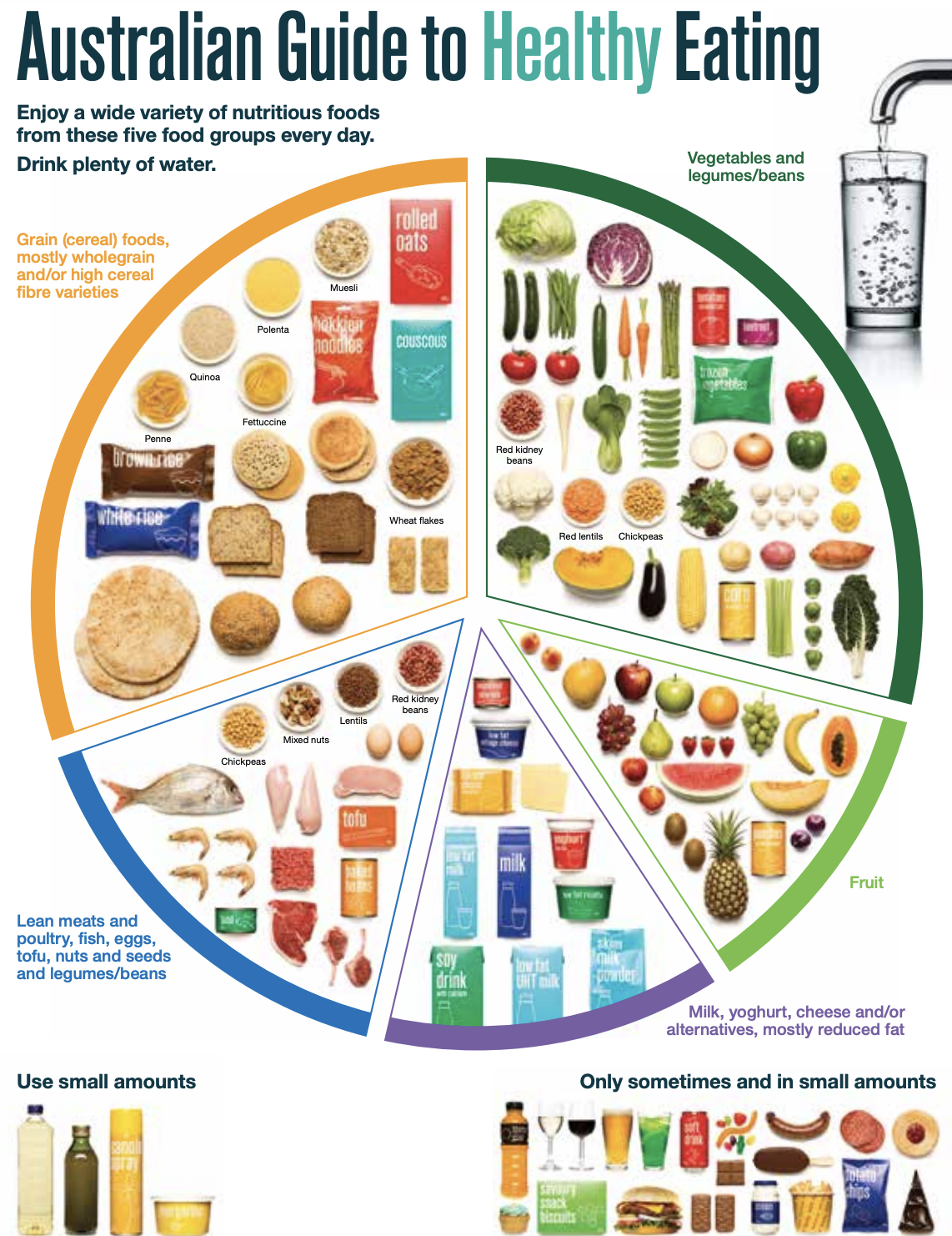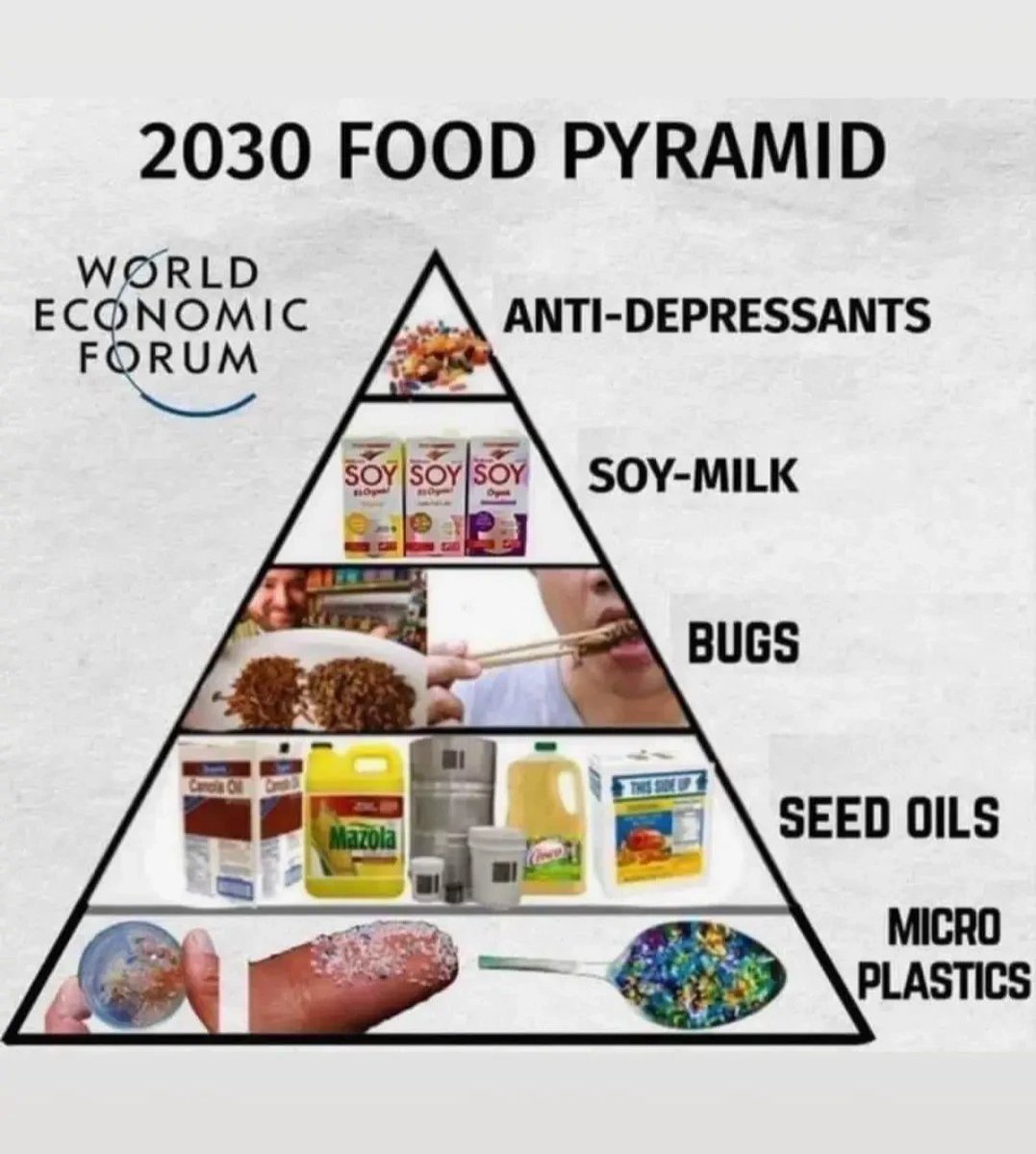Weekend Open Forum
There's another weekend ahead and so much to talk about. Here's a safe space to raise whatever is on your mind.
The latest healthy eating guidelines reflect the personal opinion of just a third of respondents. It's more zealotry masquerading as 'science', which is the hallmark of government experts.

After decades of recommending a food pyramid that has seen obesity rates skyrocket, the diet experts have some changes on the way.
And no, this isn't about your health - these are government experts after all. Instead, this is about the health and longevity of Gaia, the earth mother worshipped by the climate cultists.
Perhaps you didn't know that what you eat has a big effect on the planet. That's why the National Health and Medical Research Council (NHMRC) to incorporate environmental sustainability into Australian Dietary Guidelines
According to their own material, they provide the scientific evidence for healthier Australian diets. Here's their current guide in a single graphic.

Clearly the experts aren't doing such a great job in convincing the public (or maybe the experts have got it all wrong?), as the same report found that 37% of Australians were overweight and 25% were obese.
I'd bet that wasn't the case a few decades ago.
Personally, if health optimisation was a goal I'd say stick to single ingredient foods, avoid the chemicals and processed stuff and exercise.
That would mean we'd be eating meat, fish, fruits and vegetables instead of bread and muffins.
But that's not good enough. The planet's health is more important than yours and the 'science' is now determined by stakeholder engagement.
That's right, the scientific evidence for healthier Australian diets is now being influenced by surveys.
The NHMRC said including sustainability followed a “stakeholder survey” in which one in three people surveyed listed it as a priority.
That means that two-thirds of those surveyed didn't rate sustainability as an important determinant in what food is good for you.
Remember, the NHMRC claims to be all about the science behind healthier Australian diets.
How does someone's view of the sustainability of a food source help determine if it's healthy for you or not?
When questioned about the inanity of this latest update, a spokesman said:
“Developing or updating NHMRC guidelines involves a thorough review of the evidence, methodological advice on the quality of these reviews, drafting of the guidelines, public consultation and independent expert review of the final guidelines.”
There's a word salad that basically says we have no science to support what we are doing.
Remember, there was no review of evidence, no methodical advice, no public consultation and no independent expert review. This change was made because one third of those surveyed said sustainability was important to them.
Personal opinions and priorities and science are very different things.
At least they were.
We now live in a society where so-called science is used as a shield to cover personal opinions and flawed policy agendas.
The latest dietary advice to avoid meat and other unsustainable products is just further proof that the zeitgeist considers us all a cancer on the planet.
Little wonder the government health experts (like so many other experts) have been encouraging us to do things that only seem to make us worse off.
UPDATE: One Twitter user posted this as the new WEF food pyramid. It made me laugh but looks pretty close to the truth. These things are poison

“If we knew what it was we were doing, it would not be called research, would it?”
Albert Einstein
Join 50K+ readers of the no spin Weekly Dose of Common Sense email. It's FREE and published every Wednesday since 2009